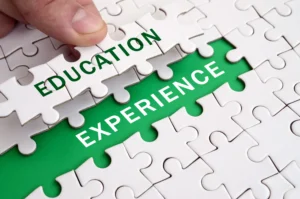In the fast-changing world of finance, one question keeps resurfacing—education vs. real experience in trading: what works best?
As we step further into 2025, traders are trying to find the right balance between learning the theory and applying it in real markets. With thousands of courses, YouTube tutorials, and trading mentors available today, new traders often wonder if they need to go through all that learning or simply start trading and learn on the go.
The truth is, both matter. However, the weight each carries may depend on your personal journey, goals, and how you learn to trade effectively. Let’s dig into this debate and explore what really drives trading success in 2025.
Why Education Still Matters in 2025
Structured education provides a framework for understanding the financial markets. Without a foundation, it’s easy to misinterpret chart patterns, risk signals, or macroeconomic news. Courses, books, webinars, and mentors all help beginners grasp essential skills like technical analysis, fundamental news interpretation, and position sizing.
Many successful traders started by:
- Completing basic forex or stock market courses
- Reading books like Trading in the Zone
- Following certified educators
- Practising concepts on demo accounts
With education, traders get exposed to trading psychology 2025 insights that help them understand emotions during real trades. It builds mental models to avoid panic, greed, and revenge trading.
For instance, understanding concepts like confirmation bias or overtrading from an educational perspective can help you avoid poor decision-making when markets become unpredictable. That’s the kind of insight only structured education offers.
Education also protects new traders from common scams, shady signal providers, and unrealistic expectations. By studying practical trading lessons, traders develop a critical filter and gain realistic expectations about success and growth.
Still, theory alone doesn’t build intuition. Real learning begins with hands-on exposure.
The Power of Real Experience in the Market
No matter how many hours you spend watching webinars, nothing compares to placing real trades.
Real experience gives you a deep understanding of market timing, execution, emotions, and adapting to live conditions. A trader can know every chart pattern but still fail in the real market due to hesitation, fear of loss, or overconfidence.
In 2025, markets are faster, influenced by AI-driven sentiment, unexpected macro events, and high-frequency trading. This makes emotional stability more important than ever. Through real trades, traders build resilience and refine their edge.
Let’s take an example. Suppose a trader learns a scalping strategy through a paid course. It looks promising during backtesting. But in live markets, they experience slippage, spread manipulation, and emotional fatigue. Only after several weeks of journaling and adjustments does the strategy become profitable. That learning comes only through practical trading lessons in live conditions.
Some of the top lessons real trading teaches include:
- Risk management when real money is on the line
- Managing emotions when facing drawdowns
- Identifying setups that match your trading personality
- Learning to sit through boring sideways markets
- Understanding how global events truly impact price action
These lessons are rarely captured by theoretical material. Real experience teaches what no course can simulate.
Common Mistakes When Relying Only on Education
Traders who only focus on theory without market application often fall into a false sense of confidence. They memorise indicators, understand economic calendars, and read all the right books. But once they go live, things change.
They experience:
- Analysis paralysis from overthinking every setup
- Inability to execute trades at the right time
- Lack of discipline when positions go against them
- Emotional decisions despite knowing trading rules
- Failure to adapt when strategies stop working
In most cases, the issue is not the lack of knowledge but the lack of lived experience. While learning indicators helps, using them under pressure is a different skill. This is where trading psychology 2025 becomes critical.
Knowing that the market is irrational and can move against logic is something only real trades will teach. Emotional intelligence matters just as much as strategy.
So while education builds your system, experience strengthens your conviction.
Why Pure Experience Without Learning Can Backfire
Now let’s flip the coin. Jumping into trading without any education can be dangerous. Many retail traders do this in 2025 due to easy access to trading apps, leverage, and social media hype.
Without understanding core concepts, these traders:
- Overtrade and blow their accounts
- Chase losses out of frustration
- Follow unverified influencers or Telegram groups
- Trade blindly during high-impact news events
- Fail to use stop-losses or proper risk management
Such traders often believe experience alone will teach them, but what they really do is repeat costly mistakes without progress. This leads to burnout, fear, and even quitting trading altogether.
Even basic exposure to practical trading lessons could have prevented this spiral. For example, learning the impact of lot sizing or the risks of trading during news events helps build a safety net.
Learning first, even at a basic level, provides structure, discipline, and boundaries. It limits unnecessary losses and prepares traders mentally.
The Smart Path: Merging Education With Experience
In 2025, successful traders don’t choose between education or experience. They blend both strategically.
A smart trader may:
- Start with free resources like BabyPips or YouTube.
- Move to structured paid programmes or mentorships
- Test strategies in demo accounts
- Slowly shift to real accounts with small capital
- Review and refine trades weekly using a journal
- Keep learning new material as markets evolve
This process builds solid foundations while allowing flexibility through experience. Trading success in 2025 comes from staying adaptable, not just memorising theory or relying on luck.
Traders also focus on reviewing their psychological patterns. With tools like trade journaling apps or performance reviews, they analyse behaviour patterns, not just results. This aligns directly with trading psychology 2025 principles.
Real-World Examples of Balanced Growth
Consider these traders:
Nina, a 29-year-old swing trader, began with a structured online course on price action. She took six months of demo trading and now consistently profits using her refined strategy. Her growth is steady because she documents every trade.
Rohit, a 35-year-old day trader, started with real money and lost a significant amount. After losing confidence, he studied practical trading lessons from mentors, restructured his strategy, and now trades with calm execution and better results.
Tom, a 40-year-old former analyst, had all the education but no trading results. It was only after six months of small real trades that he understood the importance of adapting under pressure.
These stories show that education vs. real experience in trading is not a competition. It’s a process of alignment.
Trading Psychology 2025: The Hidden Factor
One area that blends both learning and action is psychology. Whether you start with courses or real trading, emotional control remains at the centre of all decisions.
In 2025, trading psychology has become more than just a soft skill. It’s part of every serious trader’s toolkit. Topics like self-awareness, emotional detachment, and performance under pressure are being discussed as much as strategy.
To improve your psychology, consider:
- Practising mindfulness before trades
- Setting daily limits and walk-away points
- Using post-trade analysis to reflect on emotions
- Reading books on behavioural finance
- Watching interviews with experienced traders
This focus on mindset helps bridge the gap between education and execution. By applying psychological techniques to real trading, you ensure deeper learning and better results.
Final Thoughts: What Works Best?
So what works best in trading—education or real experience?
The answer lies in combining both intentionally. Education provides clarity. Experience provides context. Together, they form confidence.
If you are just starting in 2025, don’t rush into the market blind. Learn the basics. Study the principles. Understand trading psychology in 2025. But once you’re ready, take action. Even small live trades offer practical trading lessonsthat theory can never replace.
If you’ve already been trading but feel stuck, revisit your education. Refine your approach. Add structure to your strategy. Trading is a skill that rewards those who commit to both learning and doing.
Success in trading is not about choosing a side. It’s about building a path where both knowledge and experience fuel your journey.
Read here to learn more about “Order Flow Trading vs. Technical Analysis for Modern Traders“.

I’m Chaitali Sethi, a financial writer and market strategist focused on Forex trading, market behaviour, and trader psychology. I simplify complex market movements into clear, practical insights that help traders make better decisions and build a stronger trading mindset.

